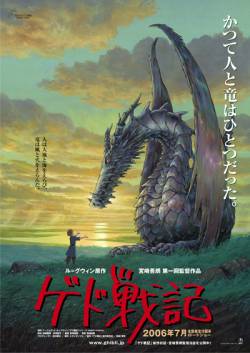This was in response to a question by my brother Tim on his Facebook feed. Putting it here because it should be somewhere more permanent than a Facebook comment. Here’s his post:
I don’t get why the Star Wars episodes 1-3 are so frowned upon. I honestly loved them and thought Hayden Christensen did a good job as Anikin. However I totally understand the annoyingness of Jar Jar Binks and a few other cheesy qwerks but in all, I’ve always enjoyed them. I mean I was born just a couple years before The Phantom Menace was released… so I grew up with the originals and the prequel influencing my imagination and it was all fun. But of course nothing beats the originals.
Okay, so here’s the deal, to me. The original Star Wars certainly had its share of bad actors (I’m looking at you, Mark Hamill) and a few groaners of its own. But the story, and the universe, was completely unique, and compelling, and often kept you guessing at what would happen. It might not be the best story ever, but it’s damn good anyway, and when you throw in jaw-droppingly good production values (especially considering when it was made), it puts it well out of orbit. Nothing else could even remotely compare with how great Star Wars was, for _decades_.
And it had mystery, and a space-age version of an age of samurai, and the mystery and power of the force.
As to the prequel trilogy, where to begin? The story, you could pick a random junior higher who could tell a story about as compelling, and with the same competence.
The production? Despite vastly more resources to spend, and decades of progress in technology, most of the special effects are clearly _inferior_ to what was in the original trilogy. If the original trilogy was well past state-of-the art, the prequels were well under the line. Before it came out, I’d _already_ seen much better production than they offered me, and had been seeing it for years. CGI in those years was popular, but still not really ready yet for something like this, and it showed. And there were people doing it better than Lucas did. Maybe not by much, but at any rate, it didn’t have the jaw-dropping factor the earlier stuff did, relative to what else was available at the time. Hell, the original trilogy _still_ looks amazing to me (and would look better still if Lucas hadn’t tried to add all those other effects in after the fact. :-P)
I’ll skip over the acting, and just talk about the characters. NO depth whatsoever, especially for Anakin, who is literally a bag full of teen angst, hormones, and NOTHING else. Well, okay… midichlorians, too. So many situations were so cliche, and EVERYTHING, you just see EVERYTHING coming miles and miles and miles away. Except maybe for his sudden rampaging, against the sand people and those in the Jedi Academy, and the fact that there was no real hesitation in either case… he went from angsty and manipulated to purely and devotedly evil so fast it made my head spin. He never, at any point in the second and third movies, showed even the barest ounce of self control in anything he did, which just makes him one of the douchiest protagonists I’ve ever seen. And completely prevents me from ever feeling any real empathy for him, which is a pretty major flaw in a series that seems to at least be trying to drum that up.
You lose both the samurai feel of the Jedi, and the mystery of the force. It’s just “weird science” now, the super-powered micro-cells in your body exerting their supreme influence over the rest of the universe. Seems decidedly less universal (must not actually bind all things together if it’s only concentrated in those things that contain blood that could have midichlorians), and completely kills the mystery (especially since they don’t explore it any further than that, where you could doubtless find more mystery again). Also, something of a rip-off of both Madeleine L’engle’s “A Wind in the Door” (well, a bit anyway), and (especially) Square’s “Parasite Eve” game, which had already explored the “the separate cell-like organelles known as mitochondria in your body are really super-powered alien creatures whose full potential has yet to be discovered” theme in detail.
Forget Jar-Jar. Sure, he’s annoying, but he’s just a mildly sloppy attempt at slapstick humor. Far more grating to me, was C-3PO, particularly in the far-too-many-close-calls-to-be-credible-OR-funny factory, there and directly after, where he lets loose a string of the WORST puns ever, without even pausing long enough between them to let them breathe.
To be fair, by this point, the original Star Wars is put on too high a pedestal, and probably can’t get a fair treatment or critical eye. It’s far, far less compelling a story when you take away the brilliant production values… but it’d still probably be up there thanks to how much they lucked out with Harrison Ford, and also due to the fact that the characters themselves are written with at least some modicum of depth. The relationships have complexity, especially the love-triangle-light that Han, Luke, and Leia present. And the differences between how they view themselves, the masks they present to the world, and what they really reveal themselves to be, make them far more interesting than any given character in the prequel series, every one of whom is exactly who they appear to be at a glance.

 A year ago I posted that Studio Ghibli was
A year ago I posted that Studio Ghibli was